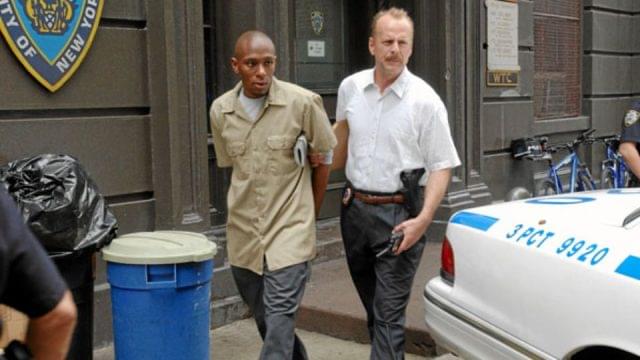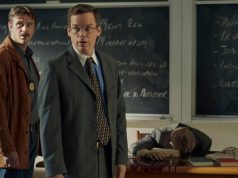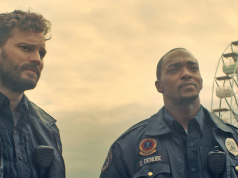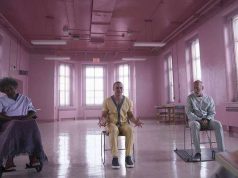
Most high-intensity films (action and horror in particular) have a scene just before the final battle where things are calm for a minute and the main characters talk grimly and philosophically about what they’ll do when this is all over, or what it’s all meant to them so far. Sometimes they use the opportunity to reconcile their differences. And then they go out, guns blazin’, to face their opponents for the last time.
“16 Blocks,” which is an action movie, has about 10 of those scenes. Taking place in almost real time over the course of two hours means there’s a lot of down time, comparatively speaking. Yes, the heroes are being pursued through the streets of Manhattan by ruthless killers, but it’s not 120 minutes of non-stop running and shooting. You can only run and shoot for five or 10 minutes, tops, before a) you get tired, or b) the conflict ends decisively one way or the other.
Most movies, faced with this realization, simply eliminate most of the non-action elements, leaving behind only the exposition at the beginning, a few shouted lines of important dialogue along the way, and that last pre-battle, calm-before-the-storm scene. “16 Blocks,” dead set on occupying no more than two hours of time — 8-10 a.m. on a busy Manhattan morning — has to leave everything in. If they cut it down to the usual action-flick scenes, the film would only be 60 minutes long.
So a large chunk of the film consists of talking. Jack Mosley (Bruce Willis), a weary, alcoholic detective with the standard-issue law-enforcement mustache, has been assigned to transport an important witness named Eddie Bunker (Mos Def) from city lock-up to the courthouse, 16 blocks away. It’s 8 a.m. now, and the grand jury is only impaneled until 10. If Eddie isn’t there by then, the district attorney won’t have enough evidence and the indictments won’t happen.
Trouble is, those indictments are against a gang of crooked cops, led by the smooth and arrogant Frank Nugent (David Morse). Eddie is the only direct witness to their crimes (aside from their fellow dirty cops), and they intend to stop him from testifying at all costs. Thus a simple 16-block trip is interrupted and Jack and Eddie go on the run, hiding, resting, waiting and scheming often enough to allow for all those chatty scenes, where Eddie talks about moving to Seattle and opening a bakery and Jack cynically says that people never change.
Mos Def has emerged as one of the better rapper-turned-actors, and his performance as Eddie, while too high-pitched and affected to be tolerable for a full 105 minutes, indicates his talent for playing real characters with real motivations. In a better film, this kind of performance would make him a star.
Bruce Willis, meanwhile, is still as reliable as a grizzled, exhausted cop as he was in “Die Hard.” That crinkly, smirky face of his seems naturally predisposed to expressing frustration, defeat and bitterness. If he weren’t at least a little jaded and world-weary, he would cease to be Bruce Willis.
But director Richard Donner (the “Lethal Weapon” films, “Superman”), working from a script by Richard Wenk, is in a bind from the get-go. People who go to action movies want to see action, while people who go to character dramas want the characters to be deeper and more interesting than Jack and Eddie — who, good performances aside, are more or less stock characters from the action movie handbook. The film straddles the line between action and drama, and if you’ve ever sat on a fence, you know how after a while the desire to choose one side or the other becomes all-encompassing.
C+ (1 hr., 45 min.; )





